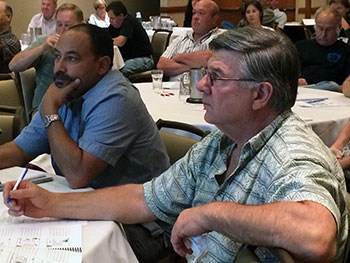
West Sacramento, Calif. — California Technical Assistance Providers (CalTAP) are holding a free water systems fair October 21 from 8:30 am to 4:00 pm in Visalia, California at the Wyndham Visalia. CalTAP offers onsite technical assistance, free workshops and fairs, and other resources for water professionals throughout the state. Please note that the CalTAP Fair qualifies for six contact hours.
CalTAP providers include the California State Water Resources Control Board (Water Board), California Rural Water Association, California State University, Sacramento – Office of Water Programs, Rural Community Assistance Corporation (RCAC) and Self-Help Enterprises.
During the small water systems fair morning session, CalTAP providers will offer brief presentations highlighting their services. The CalTAP providers will then be available to answer questions and provide information regarding resources.
Breakout sessions are offered in the afternoon. Afternoon session topics include the Groundwater Rule, Chemical Metering Operation & Maintenance, Financial Management, the Revised Total Coliform Rule, Calculating Dosages, and Emergency Response Planning & Drought Contingency.
Attention Registered Environmental Health Specialists (REHS): RCAC has been designated as a continuing education accreditation agency for the REHS program by the California Department of Public Health. Contact hours earned through attendance at this event conducted by RCAC staff will count toward completion of the REHS continuing education requirement.
For more information or to register for this event go here. Visit Trainings & Events for more information on all RCAC trainings. This event is funded by the Water Board and training sessions are presented by RCAC.
Founded in 1978, RCAC’s employees serve rural communities in 13 western states and certain Pacific islands. Our work includes environmental infrastructure; affordable housing development; economic and leadership development; and community development finance. These services are available to communities with populations of fewer than 50,000, other nonprofit groups, tribal organizations, farmworkers, colonias and other specific populations. With an annual operating budget of more than $15 million and more than 100 employees working from 52 field offices, RCAC is an important resource to low-income rural communities throughout the West.
